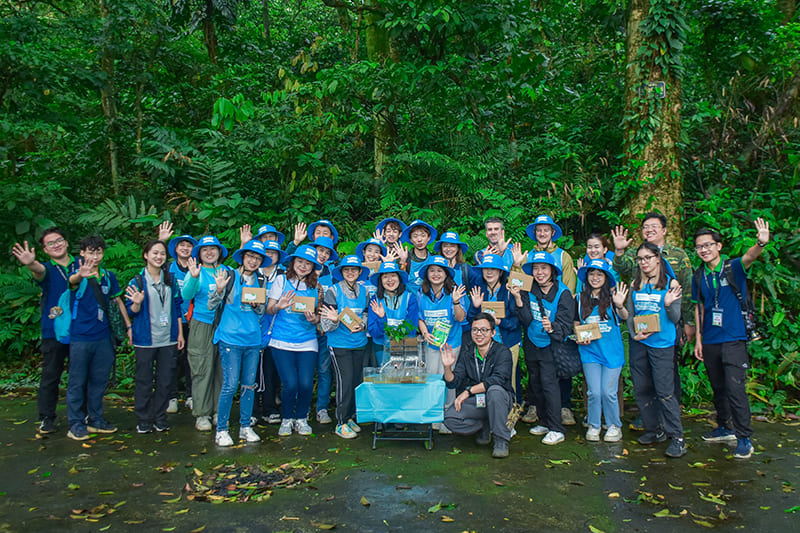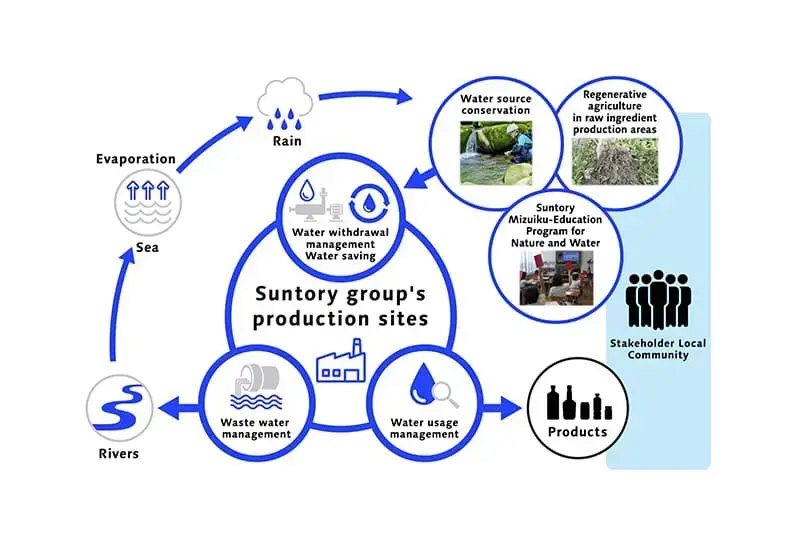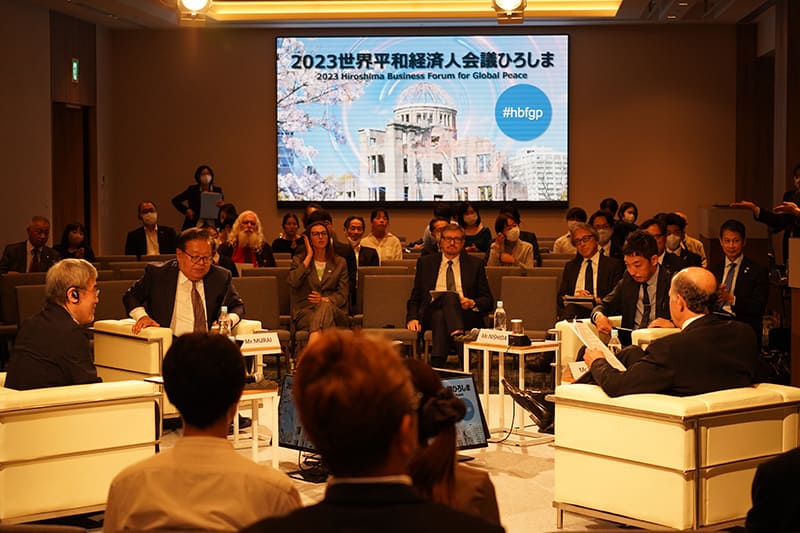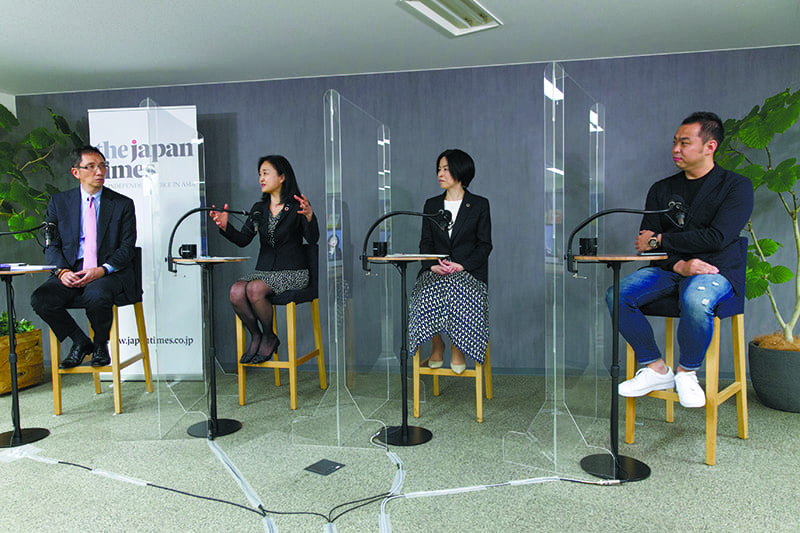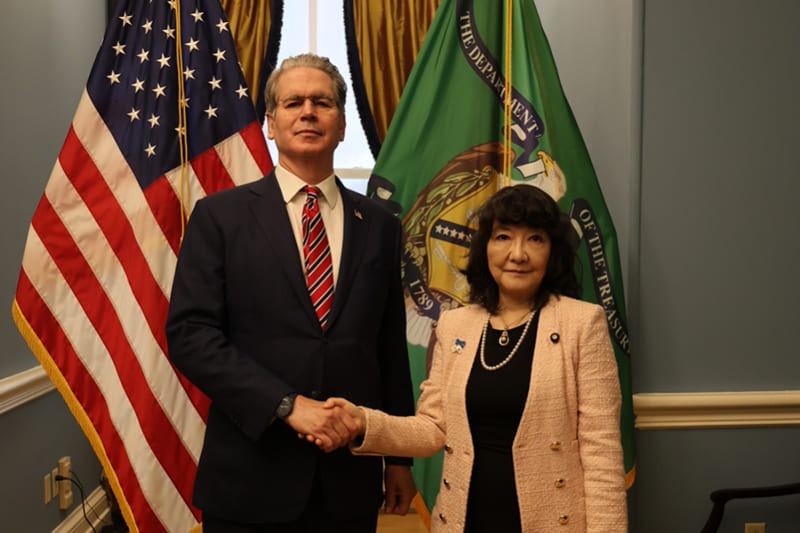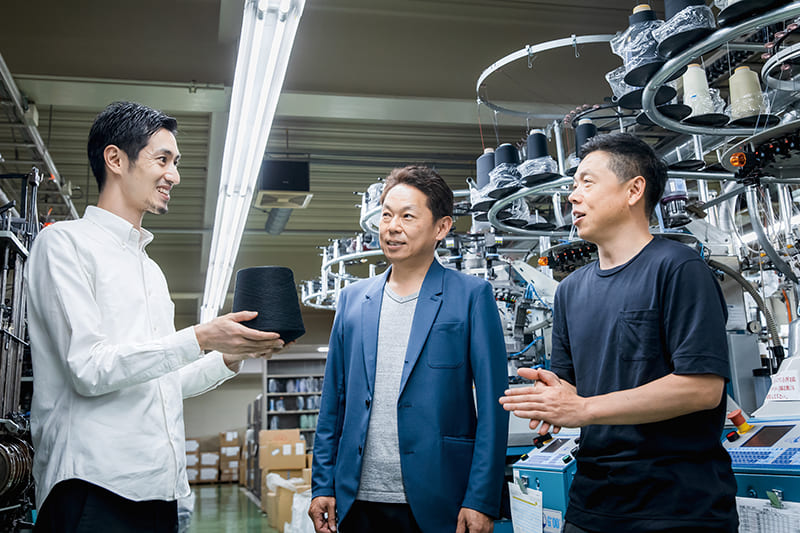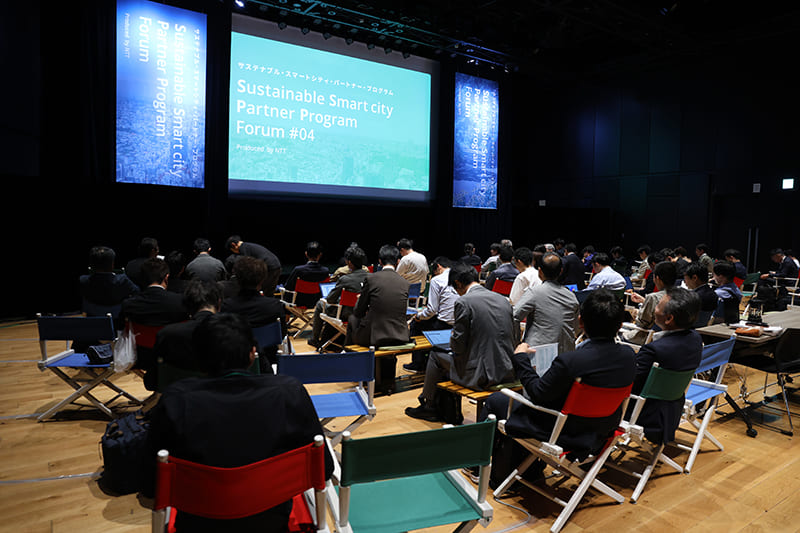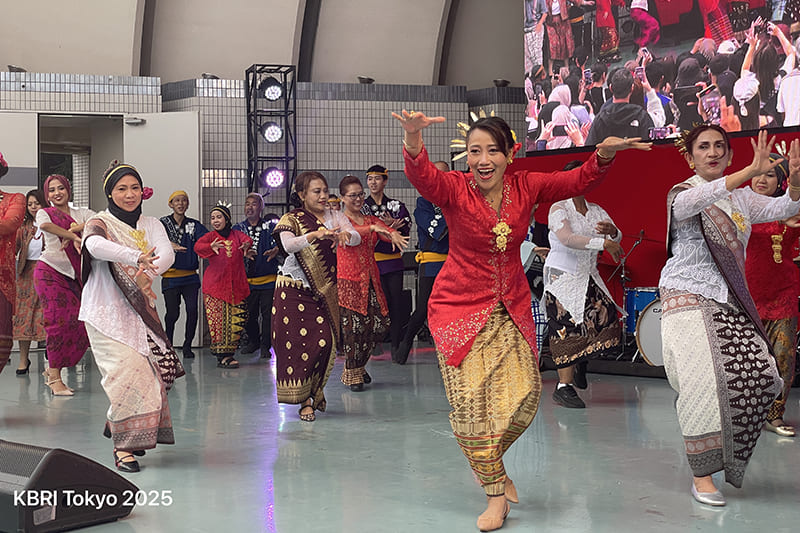June 17, 2020
Community, workers prioritized amid pandemic
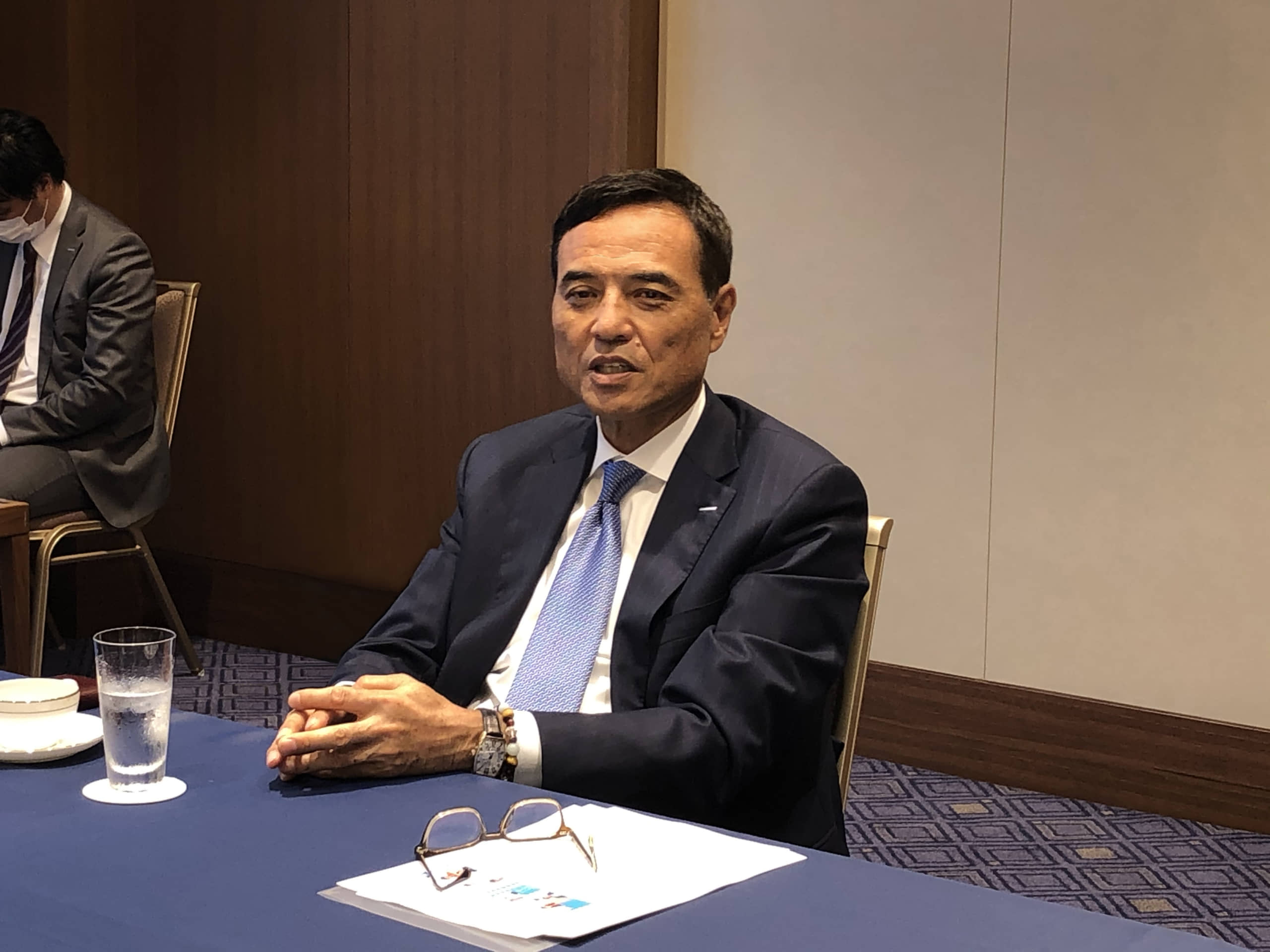
Suntory Holdings Ltd., a global leader in both the alcoholic and nonalcoholic beverages industry, has been making a shift from shareholder capitalism to stakeholder capitalism in the belief that efforts to vitalize communities will benefit the company and its shareholders in the long run.
This is more so under the current COVID-19 situation. Takeshi Niinami, president and chief executive officer of Suntory Holdings noted vibrant communities provide a basis for corporate longevity, the only way to ensure stable return for shareholders.
To revitalize communities during this challenging time, Niinami said out-of-the-box thinking is necessary.
“Realize that there are people who are struggling more than yourself. Let’s try and do something about it. This has long been one of our corporate values: Yatte Minahare (Go for it),” he said in a recent interview with The Japan Times. “I am deeply impressed that the whole world has begun to act this way to survive this crisis together.”
One of the new things that Suntory has tried recently is to support the project Sakimeshi run by internet service provider Gigi Inc. Sakimeshi offers two ways to support restaurants that are suffering from a serious dent in sales due to the spread of coronavirus. One way is to purchase a ticket of the restaurant that one wants to support, which can be used at a later date when one actually visits the restaurant after the crisis subsides. The other way is to donate to the overall restaurant industry.
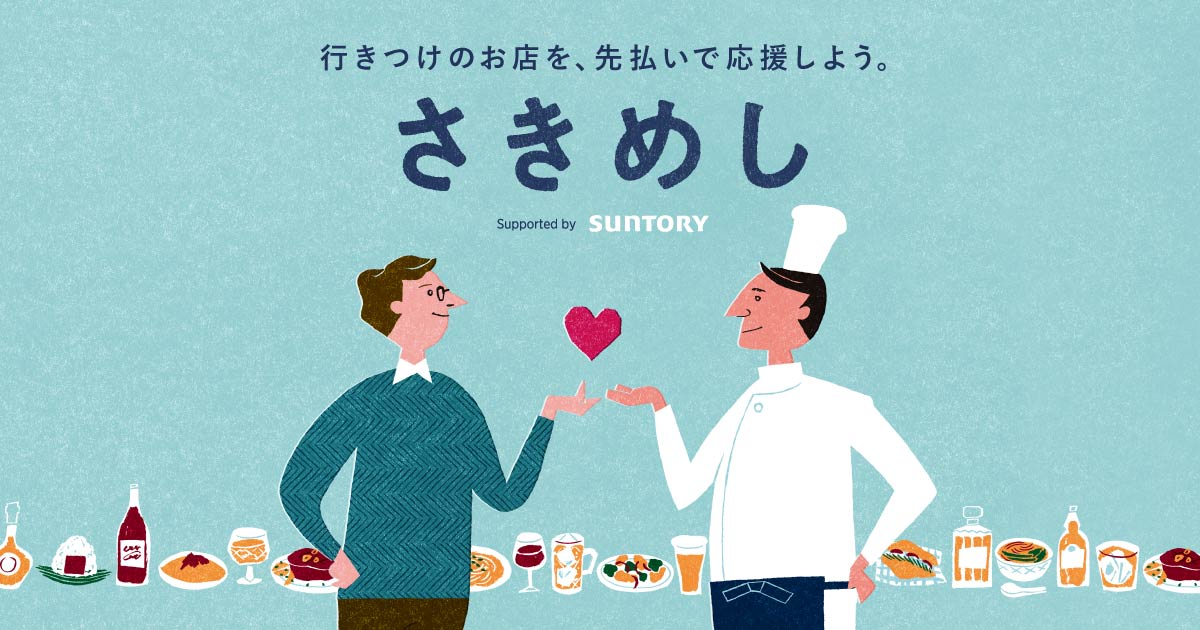
“We want to do something for those who are eager to support their favorite restaurants. We hope that our high visibility can give customers and restaurants a sense of security in participating in the project,” he said.
About 6,000 restaurants from all over Japan have registered for the service as of May 19. Many among those restaurants are obviously Suntory’s clients, but that is not the only reason why the company is committed to support the restaurant industry.
“We understand their hardship because we also run restaurants as part of our business. Even if restaurants manage to reopen after the voluntary suspension of operation under the COVID-19 situation, they have no idea as to when the number of customers and sales will fully recover,” Niinami said.
The president pointed out the food industry is an important form of Japan’s soft power and core of hospitality. “Take the Olympic Games for example, people travel to the host nation not just to see the events, but also to enjoy other experiences especially dining out during their stay,” he said, stressing the importance of saving the restaurant industry.
Meanwhile, Hanasō (Let’s talk) is a project Suntory launched to encourage the public, especially during the stay-at-home period. It is a series of videos aired on TV and online featuring 37 celebrities and professional athletes enjoying video chatting in small groups.
Right after the Great East Japan Earthquake, Suntory created and aired a TV commercial that consisted of many celebrities singing “Ue wo Muite Aruko” (“Sukiyaki”) and “Miagete Goran Yoru no Hoshi wo” (“Look up at the night stars”) to show support and togetherness to those in affected areas.
With each line sung by different celebrities, the songs touched the hearts of millions in Japan, Niinami said.
At the time of the earthquake, people got together to encourage each other and people traveled from unaffected prefectures to the devastated areas to provide support. But this time, people must refrain from getting together physically.
“That is why we chose Hanasō as the theme, to assure people that there are still ways to communicate using the power of technology to keep ourselves mentally healthy until the time comes when we can meet and talk face to face again,” Niinami said, stressing that connecting with others is what makes people’s lives humanly.
Suntory, as well as many global companies, is contributing to the fight against COVID-19. Beam Suntory, a Suntory group member and a global manufacturer of premium spirits headquartered in Chicago, as well as Suntory’s Osaka plant, are producing sanitizer to support medical facilities.
“These kinds of activities are only made possible with the motivation and pride of our workers. I am so honored to be working with such people. This is what I think is one of the values and intangible assets of the company,” Niinami said.
During this time when economic activities have slowed down due to the COVID-19 pandemic, Niinami invited many of his employees, including new recruits across the world, to speak directly with him online. Six to nine workers were invited to each session that lasted about one hour. “It helped me hear the voices of each workplace. I was encouraged by these dialogues, too,” said Niinami.
In these meetings, he reaffirmed that Suntory will continue its efforts in activities concerning environmental, social and governance (ESG) factors.
In addition to recycling polyethylene terephthalate (PET) bottles and replacing petroleum-based PET with bio-derived PET, Suntory has also accelerated efforts in making its offices paperless, aiming to slash 3 million pieces of paper every year in order to reduce 54 tons of CO2 by 2022.
“The company’s promise to our stakeholders is Mizu To Ikiru (Live with water). We aim to practice and support what is good for the environment not just for our shareholders, but for all of society,” Niinami said. “Through this battle against COVID-19, it became obvious that excess concentration of people and industry in one area is vulnerable to pandemics,” he said, stressing that it is important to maintain economic activities in smaller areas using natural resources effectively.
Niinami noted that it is also important to re-examine the company’s global supply chain in a way that does not rely too much on one country, taking various scenarios — such as the pandemic — into consideration.
“Not just us, but everyone including European companies must have realized that we all depend so much on China,” he said. “China will continue to be an important partner, but we need to look at the fact that there are also companies in ASEAN (Association of Southeast Asian Nations) and small and midsize enterprises in Japan. We must re-examine how we can make a global supply chain sustainable in Asia as a whole.”
Such re-examination might increase costs, but Niinami said there are other expenses that can be trimmed by promoting digitalization.
“Our focus should be on increasing values and transparency rather than boosting gross margin,” Niinami said.

